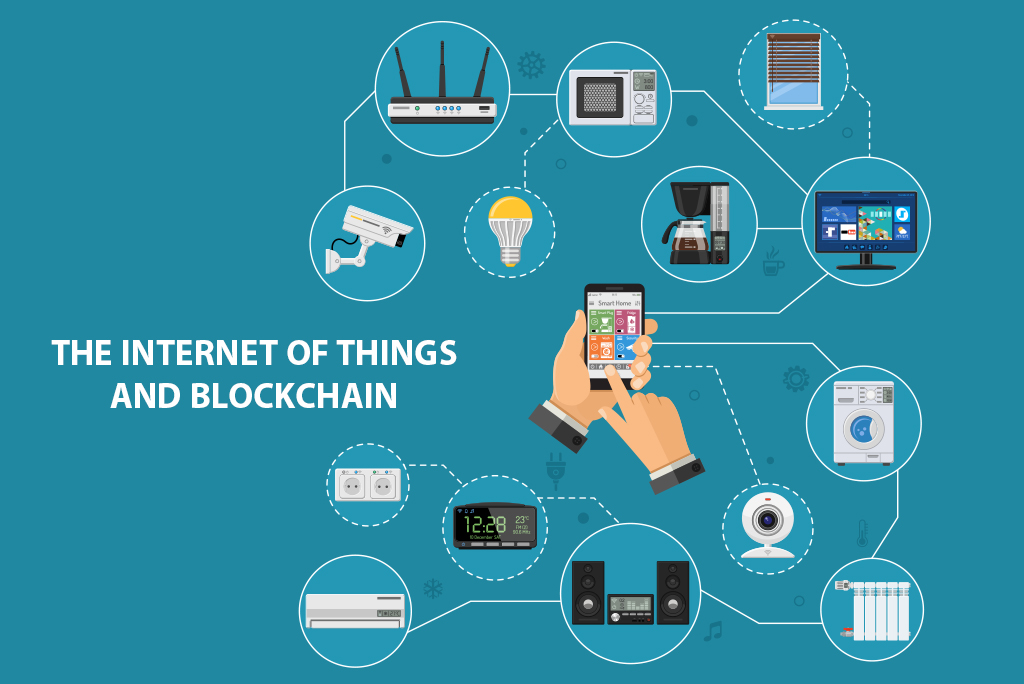internet of things blockchain
What if we told you there’s a technology that could revolutionize the way we see the energy industry? A technology that could bring efficiency and transparency to the table while addressing critical environmental concerns. That’s right; we’re talking about blockchain technology.
Blockchain Technology Creates Potential for Energy Industry

Imagine a world where energy consumption is transparent, efficient, and accountable. That’s precisely what blockchain technology can achieve by decentralizing the energy market and introducing a peer-to-peer model. This way, energy can be bought and sold directly from renewable sources like solar panels and wind turbines, bypassing intermediaries.
SolarCoin, the first blockchain-based energy currency, rewards individuals who generate solar electricity. Users can mine SolarCoin by providing evidence of solar electricity generation, which is then verified on the blockchain network. This way, homeowners can sell their excess solar generated electricity and profit by trading SolarCoin.
Additionally, blockchain technology can help boost energy efficiency in the existing energy market. A blockchain-based platform can track the various stages of the energy supply chain, from the generation to the consumption of energy, which enables users to monitor energy usage in real-time, reducing energy wastage.
The Potential of Blockchain for IoT

Have you ever wondered how your home devices like your AC, fridge, and lighting work together seamlessly? What if we told you that they could work together and optimize your energy usage with the help of blockchain technology?
Blockchain and Internet of Things (IoT) devices can work in harmony, but why is that important? Firstly, current IoT devices rely on centralized servers for communications and data storage, making them a prime target for hacking. Blockchain technology eliminates the need to rely on centralized servers, making IoT devices more secure and less vulnerable to attacks. Additionally, decentralized IoT devices can communicate and transfer value without intermediaries. For instance, IoT devices in a smart home can transfer energy tokens on a blockchain network to optimize energy use and reduce wastage.
Blockchain and the Internet of Things: Benefits, Expectations, Challenges

So far, we’ve seen how blockchain technology can benefit the energy industry and IoT devices, but what about the challenges that come with it?
One of the significant benefits of blockchain technology is its immutability, where once data is recorded on the blockchain, it can’t be modified or deleted. However, when it comes to IoT devices, keeping immutable records could be challenging due to their dynamic nature. IoT devices generate vast amounts of data, which require frequent updates, making it hard to keep an immutable blockchain record. Another challenge is that most IoT devices run on low-end hardware, making it hard to implement complex blockchain algorithms, which require substantial processing power and memory.
Conclusion
Blockchain technology has the potential to transform various industries significantly. The ability to have a decentralized, tamper-proof, and transparent system is precisely what many businesses need. In the energy industry, blockchain can reduce energy inefficiencies, increase transparency, and provide incentives for renewable energy generation. When combined with IoT devices, it can optimize energy usage and reduce wastage, making it a perfect combination for a sustainable future. While there are challenges around implementing blockchain for IoT devices, the benefits outweigh the challenges. As we continue to embrace blockchain and IoT, we need to remain vigilant to ensure their widespread adoption is both safe and secure.

Source image : www.i-scoop.eu

Source image : innovationatwork.ieee.org

Source image : iot.do





